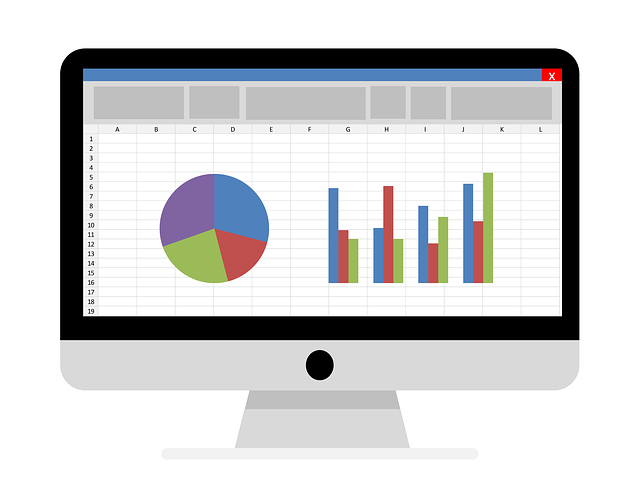Customer management software (CMS) is a digital platform that centralizes and streamlines customer interaction, enabling data-driven decisions for improved client satisfaction and loyalty. Modern CMS solutions integrate CRM, text marketing, AI chatbots, and analytics to offer holistic customer engagement, personalized communications, and instant support. Integrating analytics in CMS provides significant advantages, helping businesses refine operations, deepen client connections, craft targeted marketing strategies, and increase engagement and conversion rates. Essential features include robust data visualization, advanced reporting, integrated reputation management, and A/B testing capabilities for strategic business growth and stronger customer relationships.
In today’s competitive market, efficient customer management is key to business success. Customer management software (CMS) acts as a central hub, streamlining operations and fostering stronger client relationships. This article delves into the essentials of CMS basics, highlighting the transformative power of integrating powerful analytics tools. We explore key features of advanced solutions and provide actionable strategies for implementation and optimization, ensuring businesses leverage their CMS to its fullest potential.
- Understanding Customer Management Software Basics
- Benefits of Integrating Analytics Tools
- Key Features to Look for in Advanced Solutions
- Implementing and Optimizing for Maximum Efficiency
Understanding Customer Management Software Basics

Customer Management Software (CMS) forms the backbone of any business’s efforts to build and maintain strong relationships with its clientele. At its core, CMS is a digital platform designed to streamline and centralize the process of managing customer interactions, data, and transactions. This software acts as a powerful tool for businesses to organize and analyze customer information, enabling them to make data-driven decisions that enhance client satisfaction and loyalty.
By integrating features like customer relationship management (CRM), text message marketing, and AI chatbots, modern CMS solutions offer a comprehensive approach to customer engagement. CRM systems provide a structured framework to track customer interactions, while text message marketing allows businesses to communicate directly with customers, offering personalized promotions and updates. Moreover, AI chatbots enhance customer support by providing instant responses to common queries, thereby improving overall client experience.
Benefits of Integrating Analytics Tools

Integrating powerful analytics tools into customer management software offers a multitude of benefits for businesses seeking to optimize their operations and enhance client relationships. By leveraging data-driven insights, companies can gain a comprehensive understanding of customer behavior, preferences, and pain points. This knowledge enables them to tailor marketing strategies with precision, ensuring every communication and promotion resonates with the target audience. The result? Improved engagement rates and higher conversion probabilities.
Moreover, analytics tools streamline processes through automation. Features like automated missed call text back, for instance, instantly respond to customer inquiries, providing immediate support and reducing response times. This level of efficiency not only boosts client satisfaction but also frees up valuable time for customer service teams to focus on more complex issues. Ultimately, integrating analytics into customer management software becomes a strategic imperative, empowering businesses to stay competitive in an increasingly data-centric marketplace.
Key Features to Look for in Advanced Solutions

When selecting a Customer Management Software (CMS) with powerful analytics tools, several key features stand out as essential. Firstly, look for robust data visualization capabilities that present complex customer insights in digestible formats like charts and graphs. This enables businesses to swiftly identify trends, patterns, and opportunities that can drive strategic decision-making. Secondly, advanced CMS solutions should offer sophisticated reporting functionalities, allowing users to generate customized reports tailored to specific business needs.
Moreover, reputation management tools integrated into the software are invaluable for gauging customer satisfaction and managing brand perception. These features facilitate businesses in addressing customer feedback effectively and enhancing their overall service quality. Additionally, the ability to optimize landing pages and sales funnels through A/B testing capabilities can significantly improve conversion rates and enhance customer engagement. Such functionalities ensure that your CMS is not just a tool for data collection but a strategic asset for driving business growth and fostering stronger customer relationships.
Implementing and Optimizing for Maximum Efficiency

Implementing Customer Management Software (CMS) is a strategic move for any business aiming to enhance its operations and customer relationships. The initial setup involves careful consideration of your company’s unique needs, ensuring the chosen CMS aligns with your goals. Once integrated, the software’s true power lies in its ability to optimize processes and gain valuable insights through powerful analytics tools. By leveraging these features, businesses can identify trends, predict customer behavior, and make data-driven decisions.
For maximum efficiency, optimizing the CMS is key. This includes customizing workflows, automating repetitive tasks, and utilizing advanced reporting capabilities. For instance, combining a CMS with text message marketing or reputation management tools can streamline communication and enhance customer engagement. Optimizing the sales funnel within the software allows for better lead nurturing, ensuring each step of the process is efficient and effective.
Customer management software with robust analytics capabilities is a game-changer for businesses seeking to optimize their operations. By integrating these tools, companies can gain valuable insights into customer behavior, enabling data-driven decisions and enhancing overall customer satisfaction. Through careful selection and implementation, businesses can harness the power of advanced solutions, resulting in improved efficiency, better resource allocation, and a competitive edge in today’s market.
